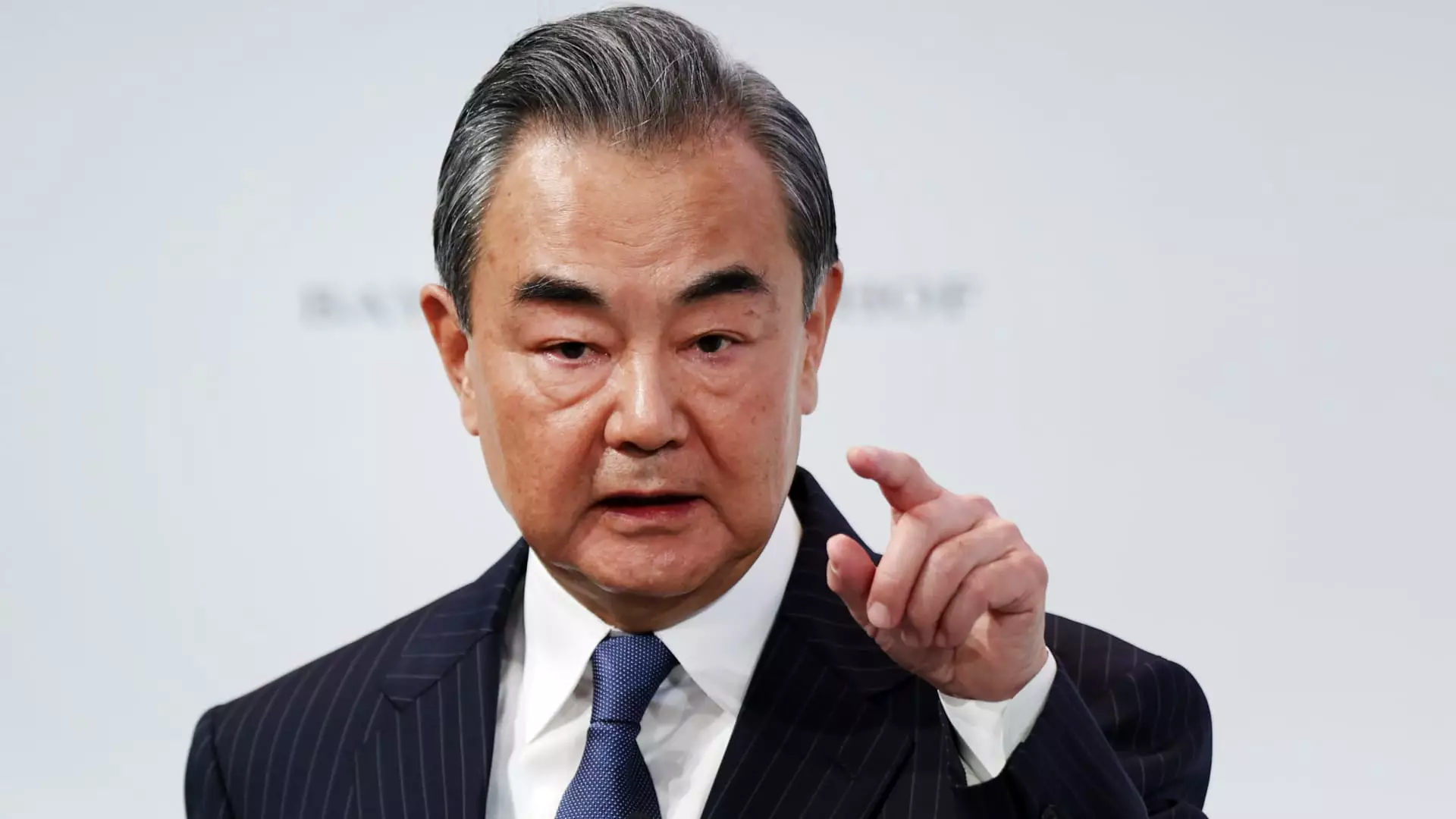It’s rare to witness a moment in international relations where aggression transforms into conciliation with such rapidity, but China’s recent diplomatic overtures under Minister of Foreign Affairs Wang Yi signal a profound, albeit calculated, shift. During a recent press conference, Wang adopted a tone that softened the aggressive rhetoric we’ve become accustomed to from Beijing. He emphasized the importance of a cooperative relationship between China and the U.S, stating that both nations should not only coexist but also work collaboratively for mutual success. This shift is not merely aspirational; it reflects a pragmatic acknowledgment of the complex interdependencies that characterize modern global affairs.
A harmonious stance is particularly advantageous when considering the economic turmoil resultant from ongoing trade disputes. Wang’s call for “peaceful coexistence” serves as a reminder that diplomatic relations should transcend hostile engagements, especially in light of the significant risks posed by a tit-for-tat tariff war. By choosing diplomacy over defiance, China is potentially positioning itself as a more stable partner—a move that could resonate positively not only with the U.S. but with other countries observing this contentious relationship.
The Fragility of Current Relations
The backdrop to this conciliatory approach is fraught with tension. Just days before Wang’s remarks, the U.S. President Donald Trump escalated tensions by imposing additional tariffs on Chinese goods. China, quick to retaliate, indicated its readiness for confrontation, asserting through the Chinese Embassy that it stands prepared to fight “till the end” if provoked. This fierce rhetoric illuminates the delicate balance at play; while China seeks to project strength and resolve, it also recognizes the necessity of diplomacy for long-term stability.
The harsh reality is that Beijing must navigate its international image carefully. Leaving behind aggressive exchanges for talks reflects an understanding that isolation is a dangerous path. The global landscape is shifting, and the implications of unilateral actions could have severe repercussions, not just for China but for the world economy. A trade war isn’t merely a bilateral issue—it has the potential to destabilize markets and affect economies worldwide.
Strategic Communication with the World
Wang Yi’s comments extend beyond China-U.S. relations; they highlight China’s ambition to bolster its influence among non-Western nations. By emphasizing cooperative engagement with other countries and advocating for a two-state solution in the Gaza conflict, Wang is laying the groundwork for China’s vision of a multipolar world. This narrative serves to position China as a champion for global equity, countering Western hegemony and promoting its own version of global governance.
Interestingly, the mention of offering technological cooperation indicates a shift towards a more interconnected global economy. Wang’s assertion that “unjustified external suppression” hasn’t halted technological advancements in China illustrates not only resilience but also an eagerness to share Chinese innovations with the world. That position may foster better relations with countries wary of U.S. dominance, suggesting that China aims to emerge as an alternative leader on the global stage.
What Lies Ahead?
Projected increases in China’s diplomatic spending signal an unwavering commitment to international engagement, even amidst internal pressures and external challenges. The 8.4% boost in the proposed budget, outpacing previous years’ increments, emphasizes a newfound focus on global presence and influence. This investment indicates an understanding that fostering relationships requires more than rhetoric; it necessitates substantial commitment and resources.
Amid the brinkmanship of geopolitics, asking whether this new cordiality is genuine or merely a tactical ploy remains essential. It is all too easy for nations to don the cloak of peace while maneuvering behind scenes for strategic advantage. The real test of this newfound diplomacy will be how both countries navigate the minefields of previous grievances and whether they can reach a mutually beneficial understanding.
The world, indeed, is watching closely as this drama unfolds. The question isn’t simply whether China can shift its diplomatic language but whether it can pivot its strategic practices to match those words. While one can hope for a less combative future between these two global giants, the path ahead is laden with challenges that will test the resilience and authenticity of any newfound cooperation.

